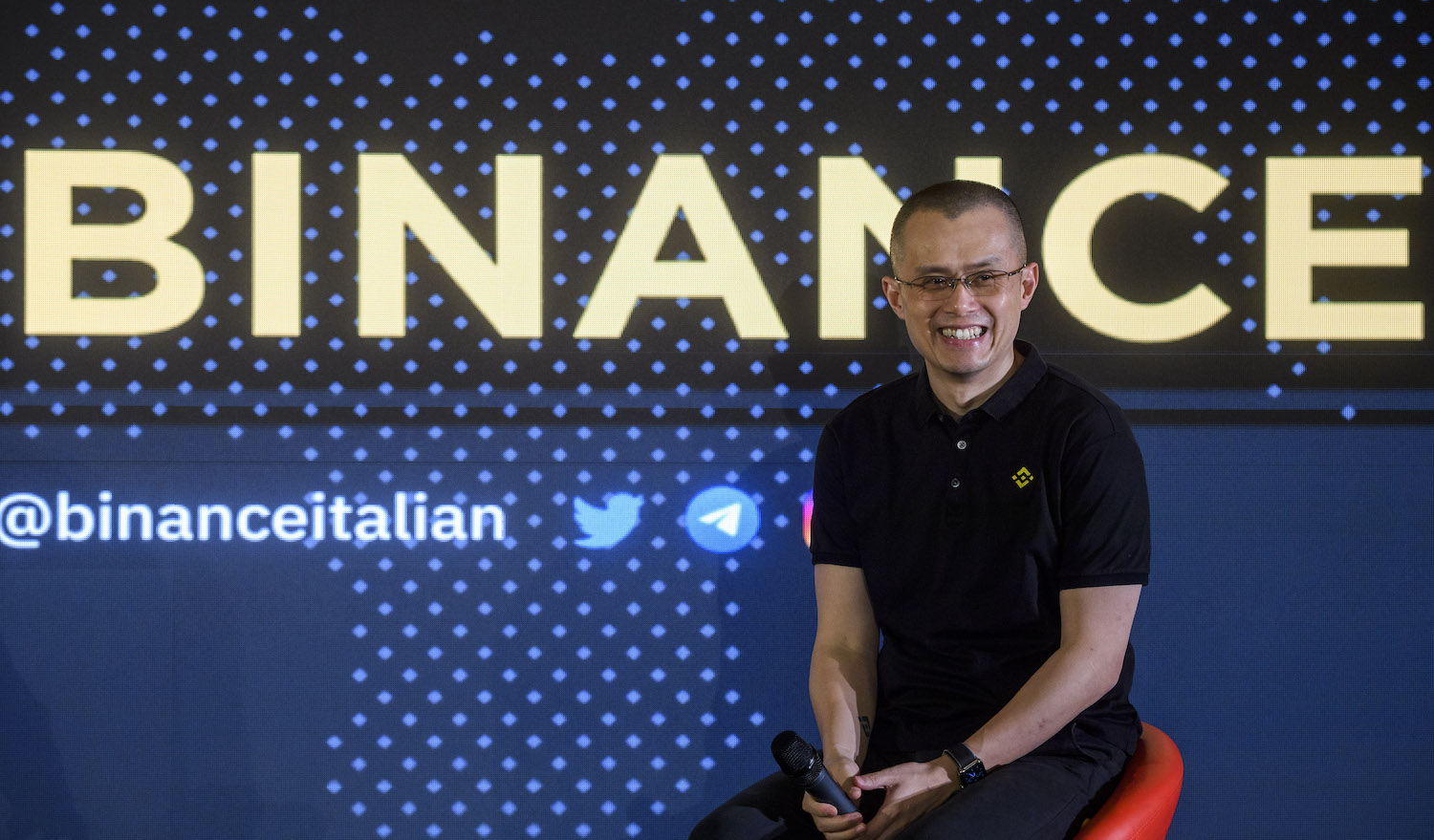Here is a tip from a small business owner: If you are a financial firm and you are going to release a public disclosure of your liabilities and assets to assuage the worries of your customers, who have lately become worried that said liabilities outweigh said assets, you should make sure that your audit does not in fact show that your liabilities outstrip your assets. I know this seems like basic belt-and-suspenders stuff, but it's the sort of mistake we in the business community see all the time.
Here's a for-instance: If you are a cryptocurrency exchange, you should not, say, reveal that two-fifths of your cryptocurrency reserves are coins that you minted yourself and that your reserves of legitimate crypto (oxymoronic as that clause is) are themselves overcollateralized. You should not withdraw $2 billion in assets to prove you have the reserves you say you do when, like, 25 cents will do. You should also not expect an increasingly skeptical public to be reassured when the accounting firm you contracted to check under the hood qualifies its report by saying they will not even "express an opinion or an assurance conclusion" on the numbers. This is the queasy position in which Binance, the biggest cryptocurrency exchange in the world by an order of magnitude, finds itself at the moment. With a skeptical public shifting its attention from the smoldering wreckage of one crypto firm to one of the last major players that is not yet on fire, the timing could be better.
The collapse of Bahamas-based cryptocurrency exchange FTX was so spectacular, so replete with colorful details and hilarious buffoons, and so massive in its totality that it is easy to overlook the series of machinations by Binance that really got things kicked into high gear. FTX founder and godawful League of Legends player Sam Bankman-Fried stunned the crypto world when he announced on the morning of Nov. 8 that he would be selling FTX to Binance, which had spurred on FTX's collapse by liquidating its reserve of FTX's in-house token, FTT. That move prompted a quasi-bank run that FTX was not nearly prepared to cover because it had badly overleveraged its reserves by shunting people's money over to Alameda Research, its money-losing affiliate hedge fund. Binance planned to take over FTX, but opted to let it die a natural death after seeing how busted it truly was.
If that sort of corporate warfare had played out between firms that provide what a normal person could identify as goods and services, one might correctly conclude that the firm still standing at the end of the day would be in a better position for having driven its biggest competitor to ruin. But that logic breaks down here, because the resource FTX, Binance, and all of the other bankrupt or soon-to-be-bankrupt crypto exchanges are competing for is not, say, wood that could be processed into timber, but a steady supply of suckers looking to make a buck in a zero-sum casino game. This is something of a renewable resource, it turns out, but it is not an inexhaustible one.
When the dust settled after Bankman-Fried finally stopped ignoring his lawyers' advice and incriminating himself to anyone willing to DM him on Twitter (though sadly, he ignored me), Binance may have found themselves in a position to eat up some of FTX's market share of those suckers looking to make a buck in a zero-sum casino game. There was one crucial problem, though, which was that the prospects of making money or even not losing all your money because of horrific fraud suddenly looked far more dubious to normal people after FTX died. If the theoretical scaffolding of crypto seemed shakier after the collapse of FTX, which had bought enough advertising and good press to become something like a recognizably normal brand, why would even the least discerning sucker trust any similar concern? If a firm big enough to get their name on MLB umpires' jerseys and an NBA arena was doing scams as something like its entire business model, the heft of any given firm would naturally seem to matter less.
Those are the existential questions Binance sought to head off with their disclosure, which the accounting firm that performed the analysis made great pains to clarify was not an audit. In fact, the scope of the reserves analyzed by Mazar's, a South African accounting firm, was limited to Binance's bitcoin holdings, which comprise 13 percent of its portfolio. An accounting professor from Wharton told CoinDesk that the report "is more worthless than even the Tether or USDC report." Fittingly, the don't-call-it-an-audit raised far more questions than it answered. For one, neither Binance CEO Changpeng Zhao (known as CZ) nor anyone else will actually say where Binance is headquartered.
That's a pretty serious deal! The company was founded in China, though it left the country when the Chinese government banned cryptocurrency. Nobody will say where it is based (it might be Malta) or what sits at the center of the nested series of holding companies and shell companies designed to shield Binance from regulators. Binance does have a U.S. presence, though they also do a ton of business in France, and the Middle East, and Africa (Nigeria in particular). Their explicit strategy, as revealed in a leaked 2018 plan called the "Tai Chi document", is to set up so many different companies and subsidiaries, including Potemkin affiliates designed to be knocked down to throw regulators off, in an attempt to become essentially unregulatable. Reuters reported in September that the Justice Department was investigating Binance for some money laundering whoopsies—using Binance appears to be one of the primary pathways to avoiding international sanctions—and on Monday, they reported that federal prosecutors are weighing whether to file criminal charges against CZ and Binance, whose lawyers have reportedly already started discussing plea deals.
The single most notable line in the Reuters investigation is a rebuttal from Binance's legal team to the federal government.
Binance's defense attorneys at U.S. law firm Gibson Dunn have held meetings in recent months with Justice Department officials, the four people said. Among Binance's arguments: A criminal prosecution would wreak havoc on a crypto market already in a prolonged downturn.
Reuters
Again, because cryptocurrency is more akin to a financialized system of faith than it is to a security pegged to anything that exists in the real world, the specter of regulation can be just as bad as the regulation itself. There are signs that people are starting to yank their money from Binance, which is the sort of development that tends to presage much more serious wobbles. Nothing Binance has released to the public about its holdings should make anyone confident in their ability to meet demand should a serious bank run occur. And as the FTX debacle showed everyone, nothing in crypto is too big to fail.






